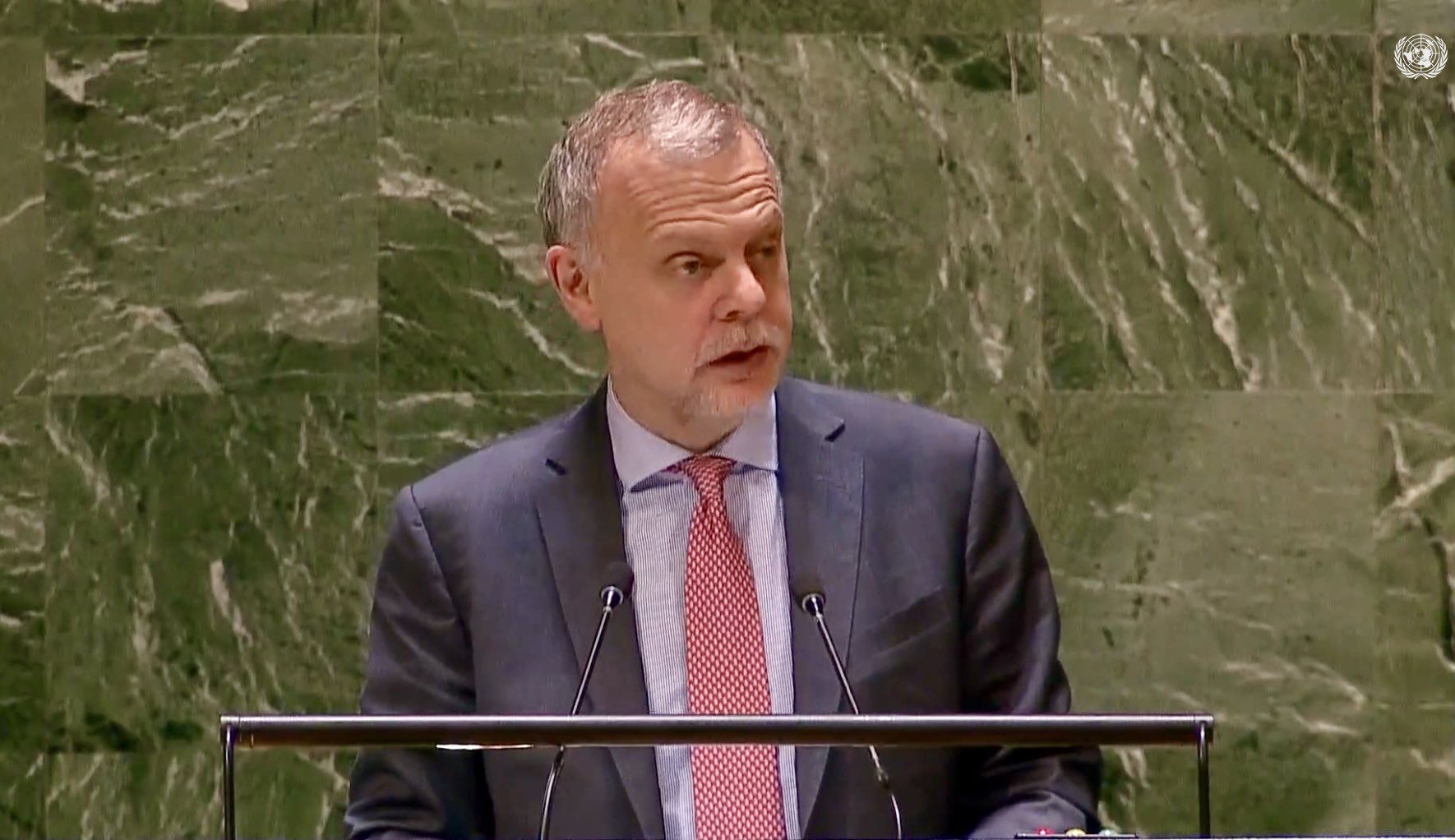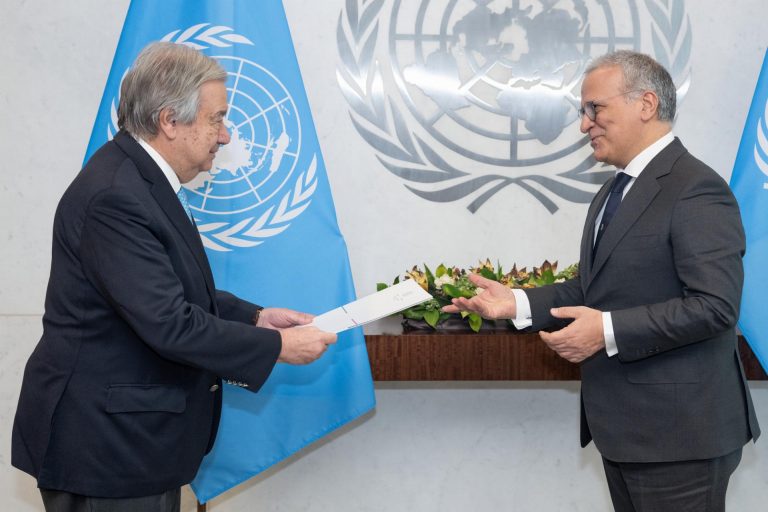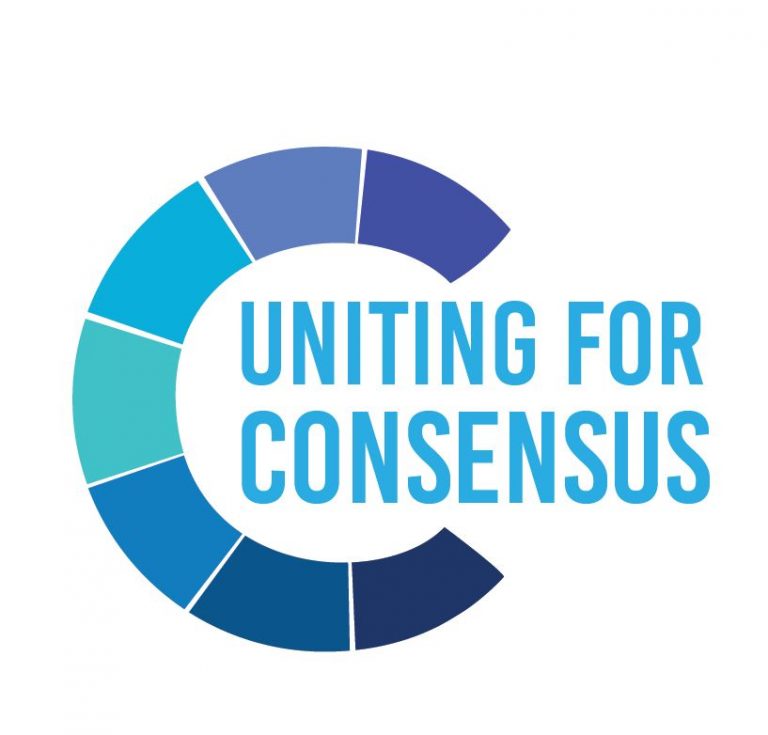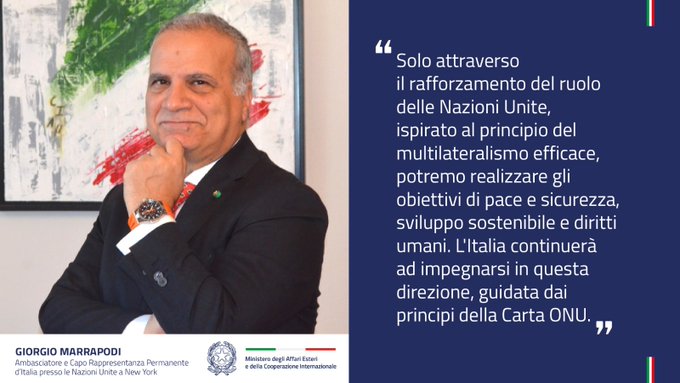Mr President,
Italy aligns itself with the statements delivered by the European Union and by Croatia on behalf of the Group of Friends of R2P, and would like to add the following remarks in its national capacity.
Italy reiterates its support for the R2P principles. The commitment to the Responsibility to Protect is first and foremost a commitment to prevent and mitigate the risk of the most heinous crimes. Atrocities can and must be prevented, and all possible efforts should be devoted to identify and address their root causes.
We welcome the last Report of the Secretary General and its focus on the intersection between R2P and development, by applying a human rights–based approach. We need early warning mechanisms as well as structural policies and comprehensive strategies to build more resilient societies based on the respect of human rights for all.
International cooperation for sustainable development, human rights and peace, is an integral part of Italian foreign policy. Under our national legislation (L.125/2014), development cooperation recognizes the centrality of the human person, in his individual and community dimension, and pursues the objectives of eradicating poverty, protect and fulfil human rights, as well as preventing conflicts, supporting peace processes, reconciliation, post-conflict stabilization, consolidation and strengthening of democratic institutions – in line with the principles and strategies of the United Nations and the European Union.
Extreme poverty, human rights violations, weak institutions and impunity can represent risk factors that needs to be properly recognized, identified and addressed before becoming actual drivers of conflict, hate and violence. Stepping up our capacities, at the national, regional and international level to address the root causes of atrocity crimes is key in this perspective.
Italy, in its capacity as Vice President of Ecosoc, has welcomed the Ecosoc Special meeting held last January 24th aimed at considering the potential of social and economic measures to prevent genocide, war crimes and crimes against humanity. This meeting has highlighted the need of further developing our knowledge on the prevention of atrocity crimes through socio-economic measures and we support the collective efforts of the international community in this direction.
In particular, we welcome a bottom-up approach to prevention, and we reiterate our support to the ongoing work of the OSAPG aimed at engaging with local communities and with grassroot organizations, embedding the principles of local ownership and factoring in a gender-sensitive and gender-responsive approach, in a way that encompasses different agendas, as those related to the fight against hate speech, to Women Peace and Security, to peace building and sustainable development.
In this spirit, we congratulate the OSAPG for the recent launching of the Plan of Action for Women in Communities to Counter Hate Speech and Prevent Incitement to Violence that Could Lead to Atrocity Crimes – called the “Napoli Plan of Action”. This Plan is the result of the joint work carried out by a group of community women leaders who met in Naples in July 2022intersec to discuss new ways to protect, support and empower those women who are at the forefront of atrocity prevention. Their joint work has resulted in the drafting of a series of recommendations aimed at advancing this very ambitious and challenging agenda.
Mr. President,
Addressing the topic of R2P in its different and interrelated dimensions is crucial to uphold our collective commitment and to end the climate of impunity that challenges our individual and collective prevention efforts.
I thank you.














